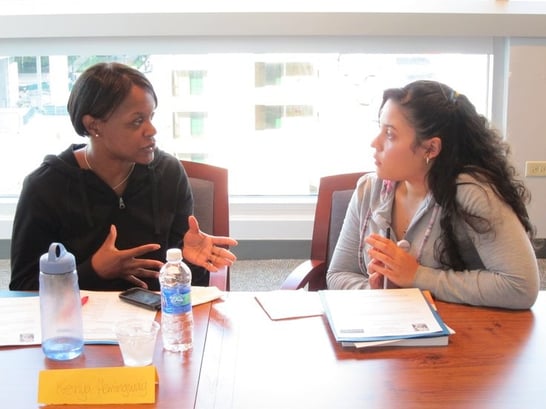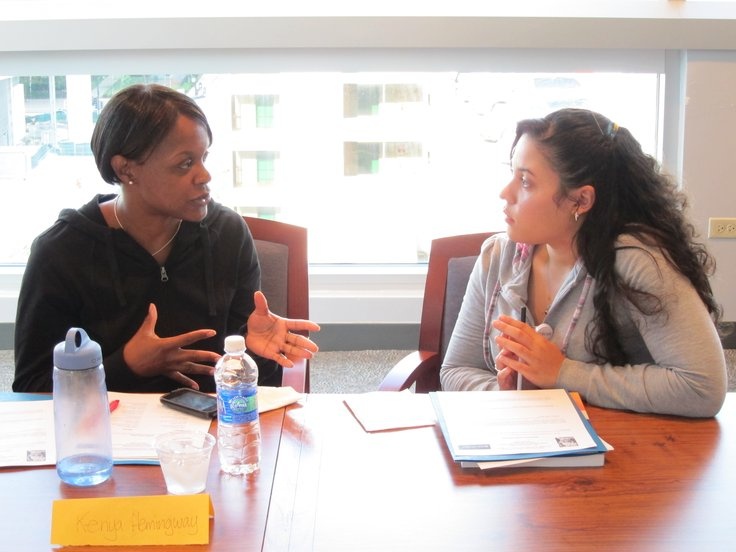 Have you noticed some people were born knowing what they wanted to do for a career? Not me, I didn’t have a clue. One friend in particular, never wavered. He knew from the time he was a young boy, he wanted to be a doctor. He achieved his goal and he’s an excellent one too!
Have you noticed some people were born knowing what they wanted to do for a career? Not me, I didn’t have a clue. One friend in particular, never wavered. He knew from the time he was a young boy, he wanted to be a doctor. He achieved his goal and he’s an excellent one too!Everyone has a reason for going to nursing school and often different reasons for continuing education beyond that. I am one of the few RNs I know at my age who decided to become a nurse when I was in high school. Living in Washington state at the time, I participated in the Running Start program, which allowed me to take college prerequisite courses at the local community college. The tuition was covered by the high school; I just paid for books. I completed my nursing school prerequisites and applied to the associate’s degree in nursing program my senior year of high school.
As a sophomore in high school, I wanted to be a nurse practitioner. I knew once I was done with my ADN, I would transfer to Washington State University for my BSN. I had even chosen my NP program. I am quite the type A personality and had my life planned in 10th grade! Interestingly, my high school counselor always questioned my decision to go into nursing. And while progressing through nursing school, I actually did change my mind. Because I have a type A personality, changing my planned path was difficult. It was one that I didn’t fully appreciate at the time, but I am thankful for today. I often reflect and tell others about what I learned along my 12-year journey. Here are the most important pieces of my self-reflection.
Pay attention to what piques your interest
As I started my RN to BSN program, I was still bound and determined to be a nurse practitioner. However, I really didn’t like pathophysiology nor pharmacology. I slugged through the material because I needed to learn it. But then came a leadership course. And as I was reading articles, I fell in love with the content. What I noticed was that many authors, all RNs, had MBAs. This made me pause. This was something I had not considered, primarily because I had never been exposed to it. As I finished my BSN, I decided I was going to get my MBA and not be a nurse practitioner.
Many of us get preconceived ideas of what we want to do based on what we know at the time. And many of us continue down a path because we do not pause to really determine if that is what we should still do. As you think about your next steps and what you want to do, pause and think. What piques your interest? Life is too short to not do what you love.
"Many of us get preconceived ideas of what we want to do based on what we know at the time. And many of us continue down a path because we do not pause to really determine if that is what we should still do.”
You get back what you put into it
During my MBA program, I couldn’t afford the time commitment to be on campus at times, so I chose an online education. At the time, many people were weary of online programs, thinking they lacked rigor and quality. This is where you need to make your own decisions. Regardless of the program type, I have seen students do the minimum work and try to sail through courses, checking off boxes, just to get the degree. As a faculty member, it is so disheartening to see. Why are you selling yourself short? It saddens me every time I overhear nurses say they didn’t learn anything when they went back to school. I am very leery of those individuals.
During my online program, I read everything and worked hard on my papers. I knew this would prepare me to be better at whatever I did. Today, I can tell the difference when I speak with someone who put in great effort to learn compared with the one who did not. It’s difficult to fake knowledge. You either know something or you don’t. So do not just treat this as a hoop to jump or check marks on a to do list. Your time is worth more than that, so spend it learning well. The time and money you are spending on education should make you better — a better nurse, a better person and an example for others. Maybe even an example to your children.
The more you learn, the more you realize you don’t know
Once I graduated with a doctoral degree, I proudly used my new initials after my name. What was interesting is that overnight, many people saw me as an expert. The perception was I had a doctoral degree, so I must know what you I’m talking about. In many ways through my dissertation I had become an expert in a particular area. But cue imposter syndrome! I feared I was really a fraud. I had to remind myself that there was no way I would ever know everything. There is so much to learn! You literally could spend every day of your life reading research articles and never know everything. What I learned wasn’t that I knew more than others; what I learned was the more you learn, the more you realize you don’t know.
So, realize that whatever stage you are at in your career or education or years of experience, there is a world out there much bigger than you or I could ever know! Pause and think — are you happy with what you are doing and where you are going? Are you taking advantage of learning? And realize that no one knows everything. We are all lifelong learners.








